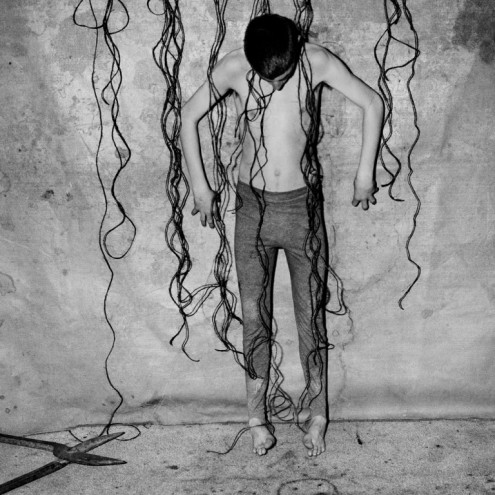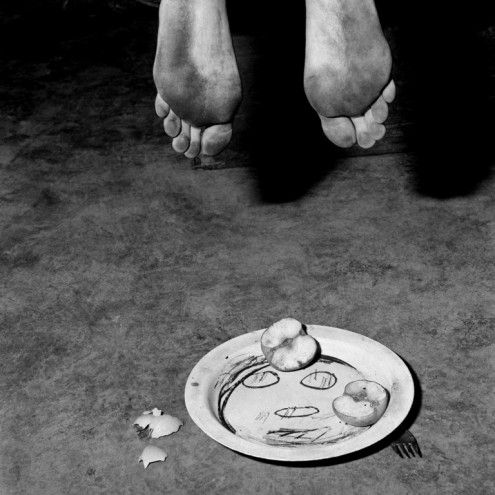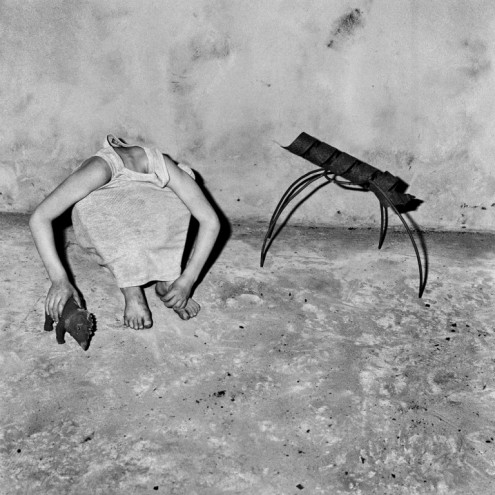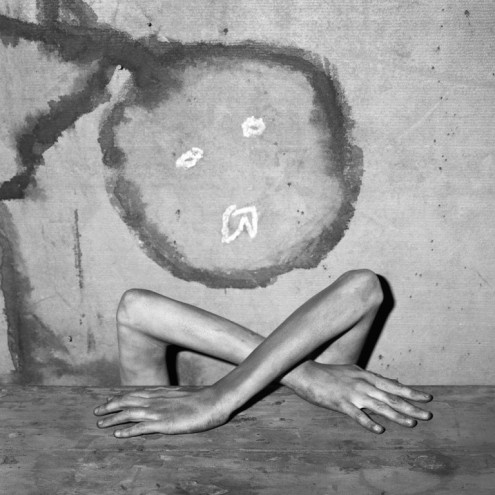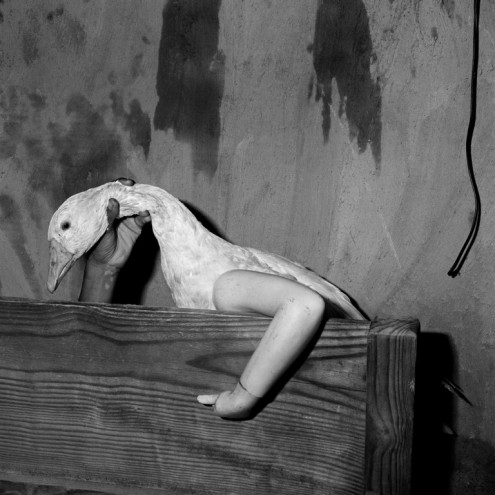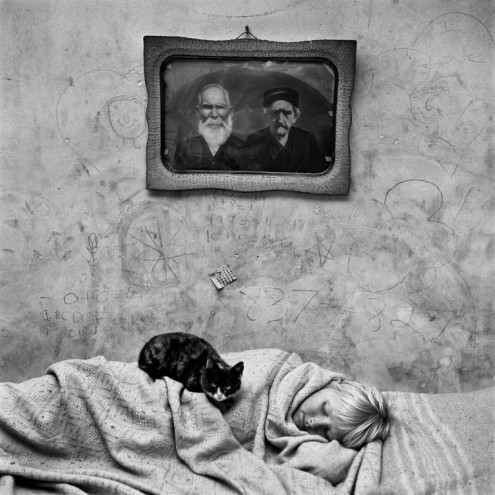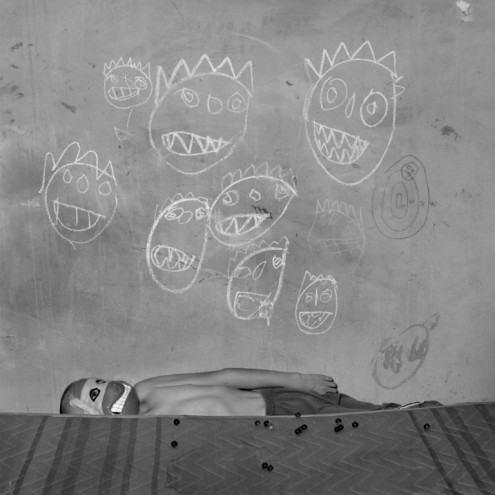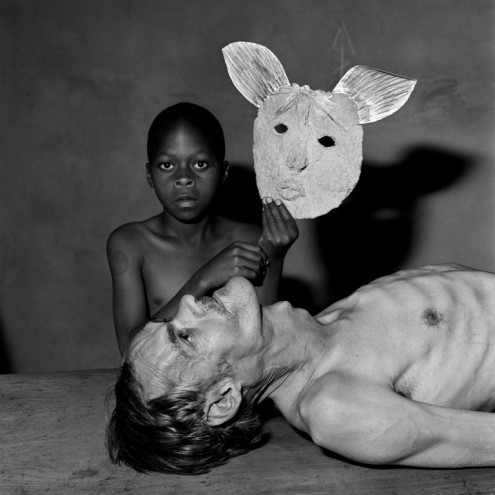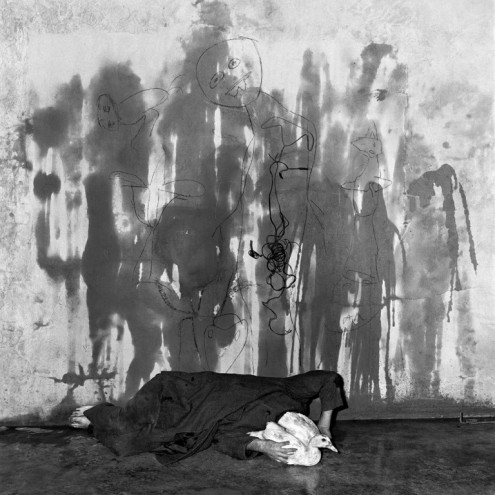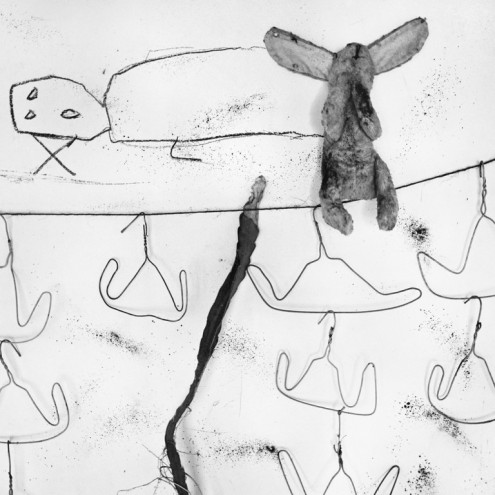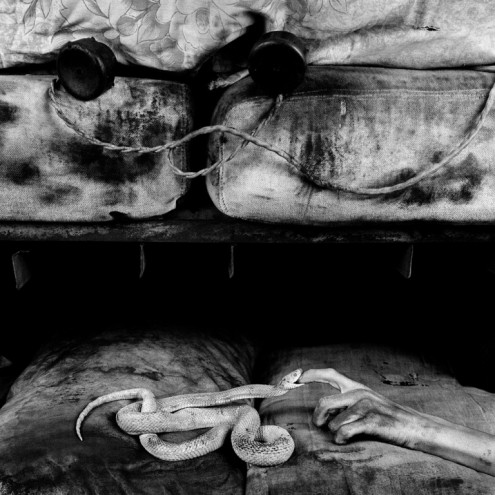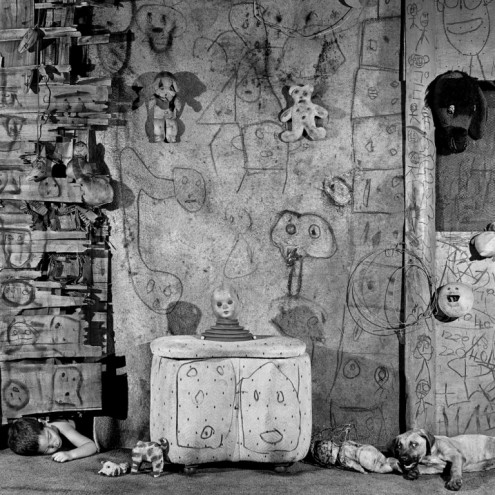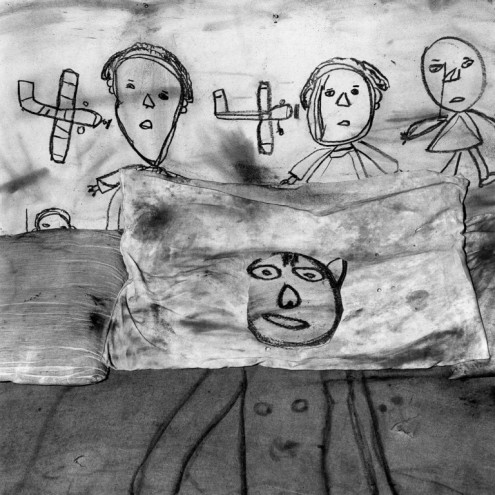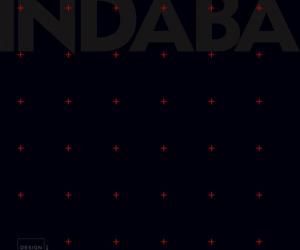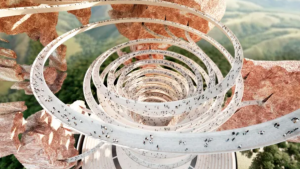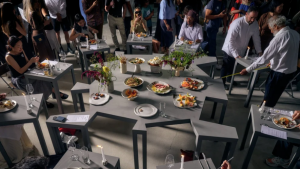First Published in
The photographic work of Roger Ballen evokes a strange sense of unease. It is both dark and familiar. It exposes the frightening and banal aspects of the human condition but with an attention to detail that makes it very personal.
Ballen’s most recent body of work, Boarding House, takes the viewer to a strange and alluring place that blurs the line between what is real and what is imagined, perhaps revealing something about the human condition. Boarding House is an imaginary space of transient residence, but does carry an element of fact. This structure, which appears to belong to the underworld, is the imagined version of a three-storey warehouse in Johannesburg where poor workers, transients, criminals, witchdoctors and pet animals hide from the world.
A departure from his earlier work, which was less elaborate, Ballen worked on Boarding House from 2004 to 2008. Although his style has expanded to reflect a more mature approach, Boarding House is similar to Outland (2001) and Shadow Chamber (2005) in being a journey of discovery in which the ordinary self needs to be left behind. In these works too, whether the world it represents is real or imagined is not important. It only matters that the viewer’s inhibition can exist in its own space.
There’s a complexity to all of Ballen’s work that is hard to verbalise with multiple meanings inherently present, making it an aesthetic that can’t be defined. But definitions aren’t what Ballen is after. He points out that his work of the past 10 years reflects a psychological experience and is not socio-political comment, as it is often misunderstood to be.
“I don’t define a meaning in each picture. The better the picture, the less is understood about it because the visual explanation is the explanation. It’s an aesthetic relationship that transcends the verbal,” Ballen explains.
Ballen does not set out to explain or analyse anything when he works. The opposing meanings and polarities that come to life in Ballen’s work, like that of humour and tragedy or order and chaos, are a coincidental result of an attempt to find the real in the fictional, and not an intentional effort to analyse anything.
The photographs are instead like a mirror, held up to the viewer so that they may decide for themselves where they fit into the picture. “If the work succeeds in helping people understand themselves better, then it is very good,” Ballen says.
At the age of 60 Ballen no longer works with inspiration. “It’s about discipline, passion and my own existential quest, and just getting on with the job.”
Boarding House shows at the Iziko SA National Gallery in Cape Town, along with a selection of photographs from Ballen’s earlier work, until 17 April 2011.

